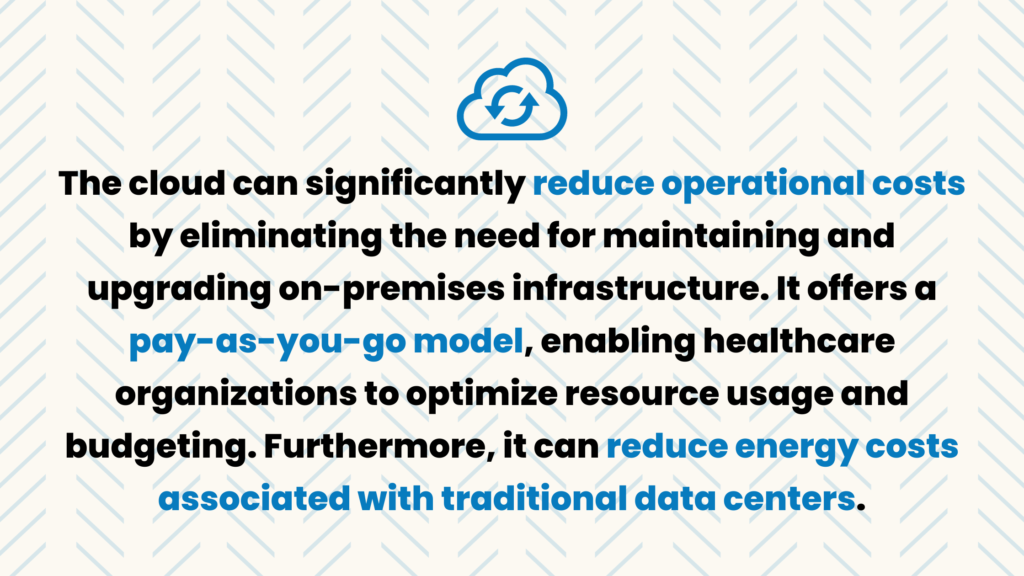9 Ways to Unlock the Power of Healthcare Cloud Migration
Introduction
In today’s rapidly evolving healthcare landscape, the need for efficient data management, accessibility, and security is paramount. Healthcare organizations are increasingly turning to cloud migration to streamline their operations, reduce costs, and improve patient care. Cloud migration offers a range of benefits, from enhanced data storage and accessibility to scalable resources and improved collaboration. In this article, we will explore nine ways to unlock the power of healthcare cloud migration, emphasizing the importance of a well-executed strategy and the adoption of best practices.
- Enhanced Data Security and Compliance
One of the primary concerns in healthcare is the security of sensitive patient data. Cloud providers invest heavily in security measures, making them a reliable choice for healthcare organizations. By migrating to the cloud, healthcare facilities can leverage state-of-the-art security protocols and ensure compliance with healthcare regulations, such as HIPAA (Health Insurance Portability and Accountability Act).
- Scalability and Flexibility
Cloud computing allows healthcare organizations to scale resources as needed. This flexibility is especially beneficial for handling patient data, as healthcare providers can adapt to changing demands and avoid over-provisioning costly on-premises hardware. This scalability also empowers healthcare organizations to rapidly respond to emergencies or sudden surges in patient data.
- Improved Accessibility
Cloud migration grants healthcare professionals and staff access to patient data from anywhere, at any time. This increased accessibility enhances patient care, allowing for faster and more accurate decision-making, especially in emergencies. It also supports remote work and collaboration among medical teams.

- Cost Savings
The cloud can significantly reduce operational costs by eliminating the need for maintaining and upgrading on-premises infrastructure. It offers a pay-as-you-go model, enabling healthcare organizations to optimize resource usage and budgeting. Furthermore, it can reduce energy costs associated with traditional data centers.
- Data Backup and Recovery
Data loss can have severe consequences in healthcare. Cloud providers offer robust backup and disaster recovery solutions, ensuring that patient data is protected from loss or corruption. This provides peace of mind to healthcare organizations, allowing them to focus on patient care.
- Data Analytics and Insights
Cloud migration enables healthcare organizations to leverage advanced analytics tools, unlocking valuable insights from patient data. These insights can drive better decision-making, patient outcomes, and operational efficiency. It’s a step towards personalized medicine and predictive analytics.
- Streamlined Collaboration
Collaboration among healthcare professionals is vital for effective patient care. Cloud-based solutions offer seamless communication, allowing doctors, nurses, and support staff to share information and work together efficiently. This collaboration can lead to better patient outcomes and more coordinated care.
- Enhanced Disaster Recovery
Healthcare organizations must be prepared for unexpected disasters, whether natural or technological. The cloud provides robust disaster recovery capabilities, with data redundancy across multiple data centers. This ensures data availability even in the face of catastrophic events.
- Innovation and Integration
Cloud migration opens the door to a wide range of innovative technologies and integrations. From telemedicine solutions to IoT devices, healthcare organizations can harness the latest advancements to improve patient care. Integrating these technologies into a cloud-based infrastructure can lead to improved diagnostics, patient monitoring, and overall healthcare delivery.
Conclusion
The power of healthcare cloud migration is undeniable, offering healthcare organizations the ability to enhance security, scalability, accessibility, and collaboration while reducing costs and ensuring compliance. The benefits are not limited to operational improvements but also extend to patient care, allowing healthcare providers to deliver higher-quality services. By adopting a well-planned cloud migration strategy and adhering to best practices, healthcare organizations can unlock the full potential of the cloud, driving innovation and improving patient outcomes in the process. Embracing the cloud is not just a technological choice; it’s a strategic move towards a brighter future for healthcare.


